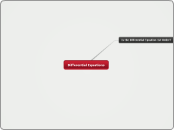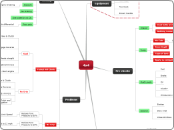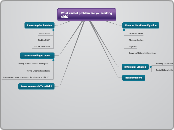Differential Equations
Is the Differential Equation 1st Order?
1st Order: the right side of the equation = 0
Solve using variation of parameters
Solve using undetermined coefficients
Solve using Laplace Transforms
Take the Laplace and put in terms of L{f(t)}
Refer to the back page of the book and match it to one of the premade equations in order to switch back to the f(t) domain
Write it as a system of first order differential equations
Solve using Eigenvectors
Please click on the globe to the right
Yes
Can it be integrated directly
No
Is it seperable
Seperable: where you can separate the variables to opposite sides of the equal sign and integrate
Can it be written in the form y'+p(t)=f(t)
no
Approximate using Euler's method
yes
Solve by the integrating factor method
I.Put into the form:
y'+P(x)y=Q(x)
II.The integrating factor will be e^(integral(P(x)dx, no +C neccessary
II.Multiply both sides by the integrating factor and integrate both sides
The left side will become (Integrating factor)*(y)
III.Solve for y
Solve by seperation of variables
I.Put all of one variable ie y,dy on one side and all of the other variables ie x, dx on the other
II.Integrate
Integrate









